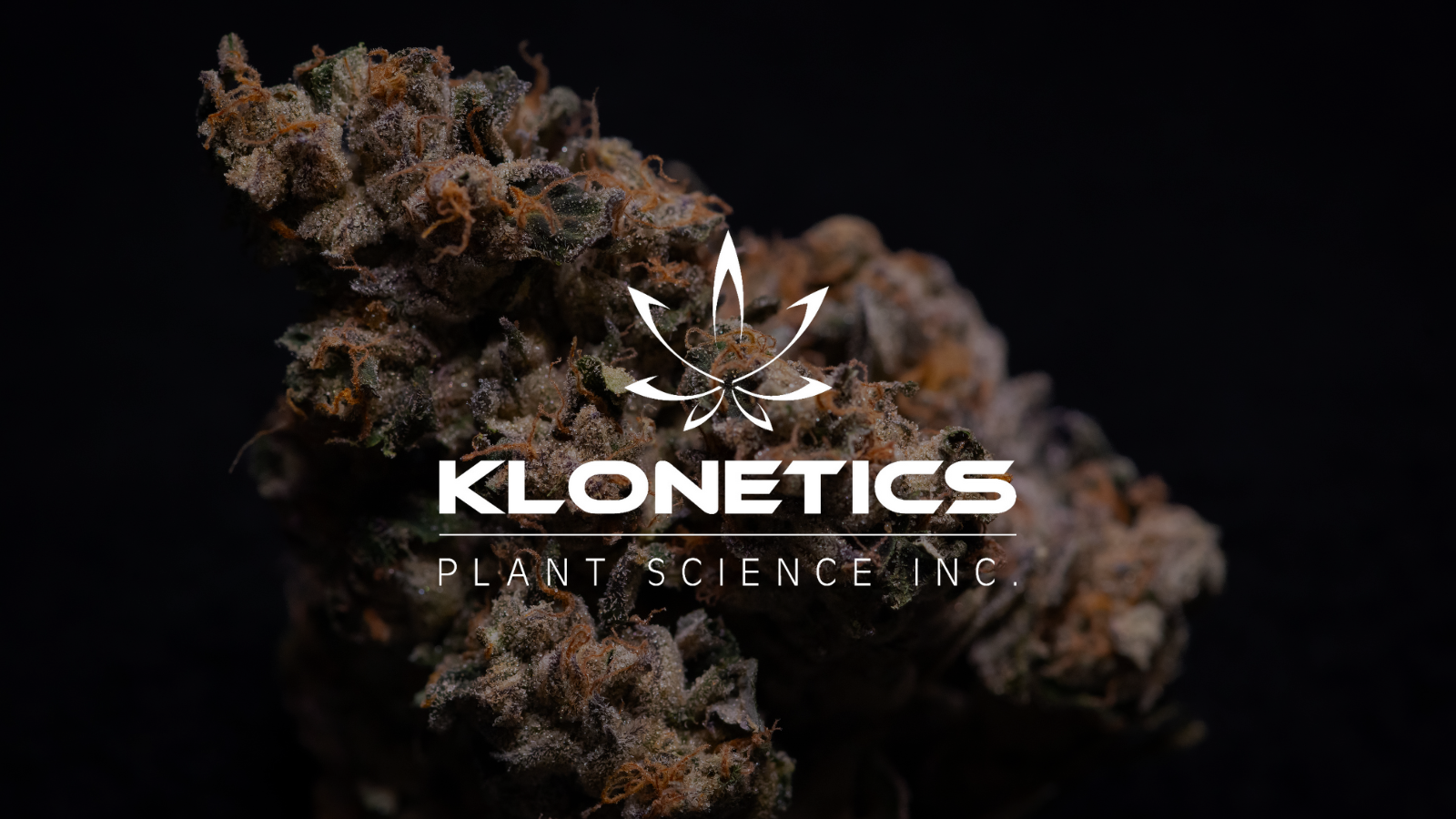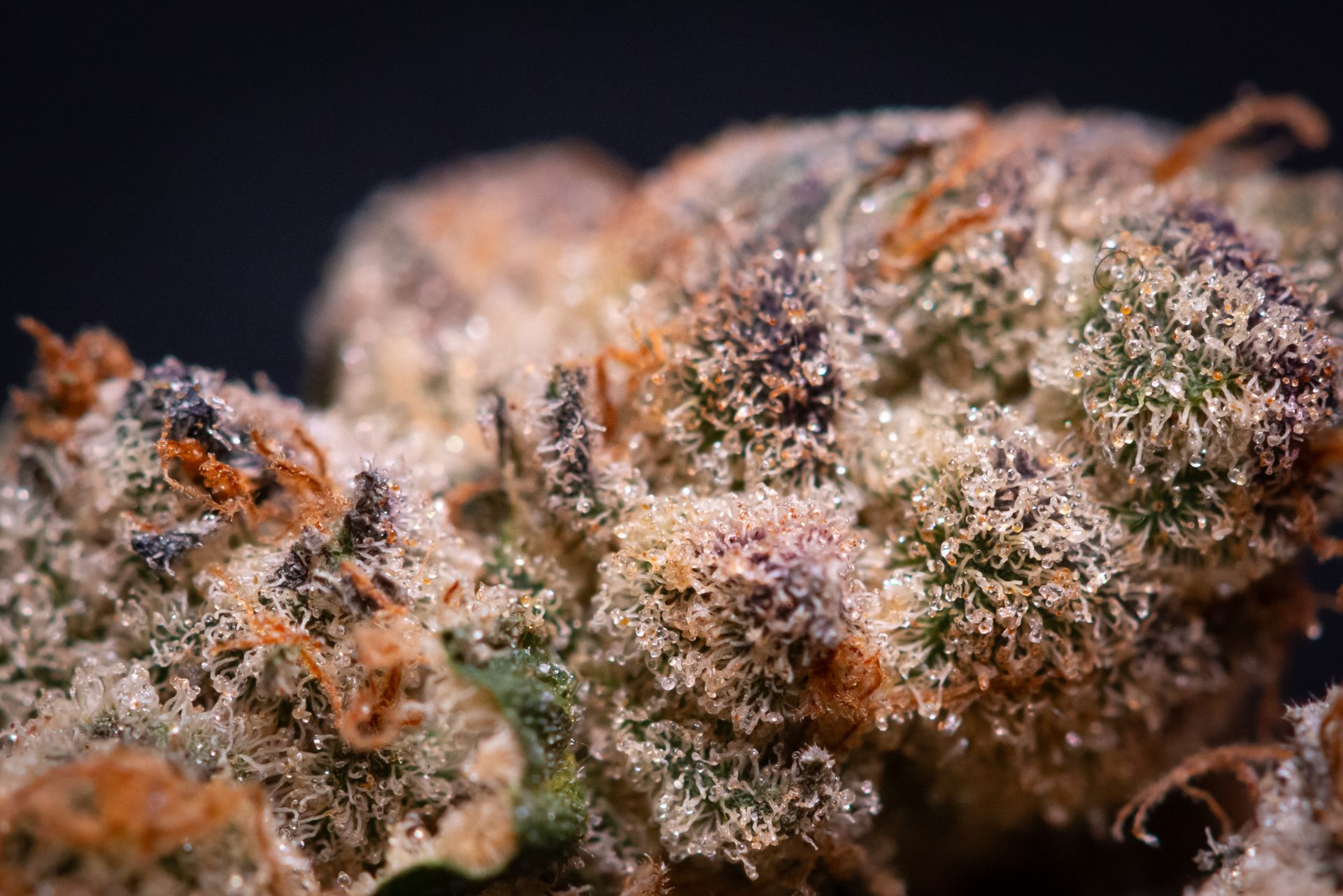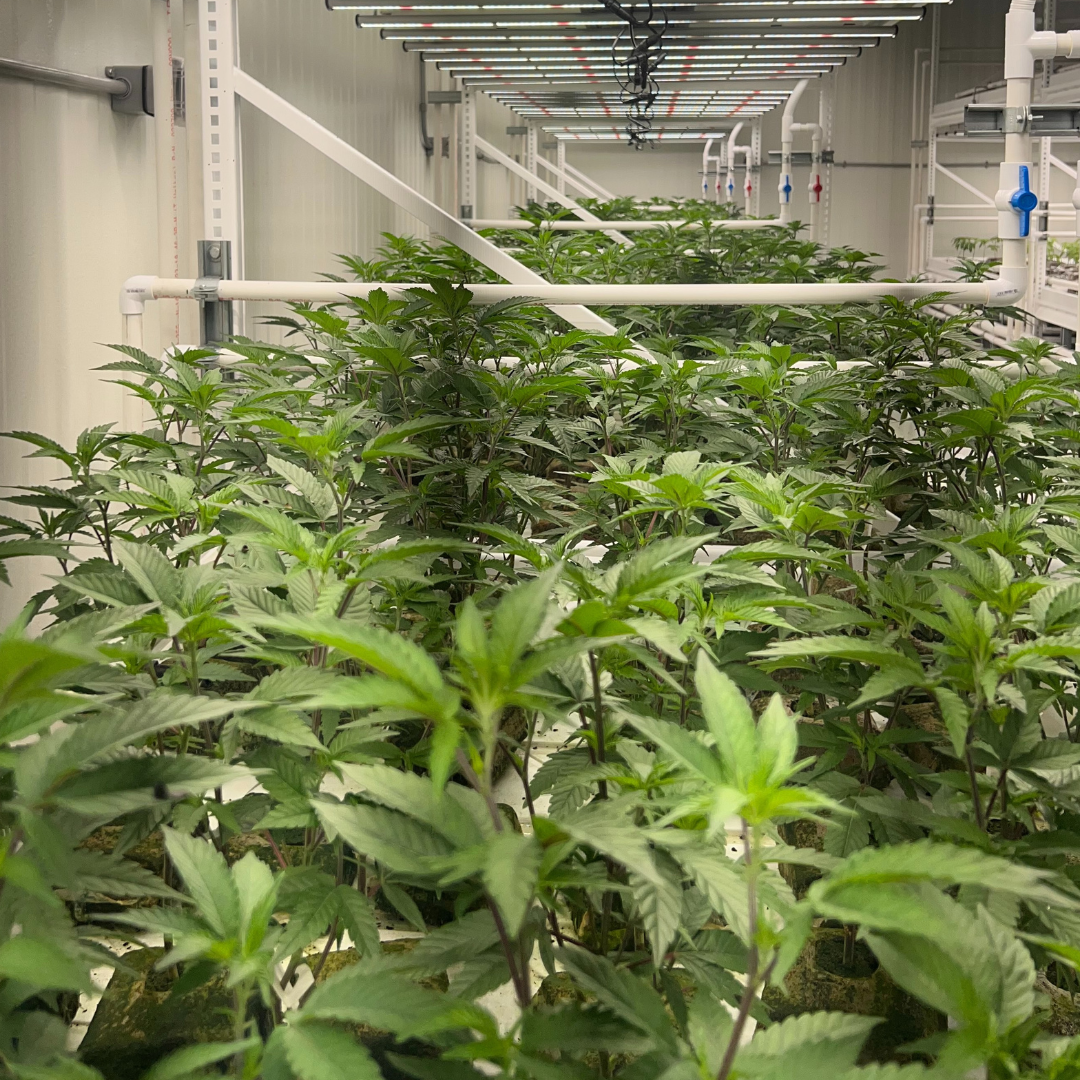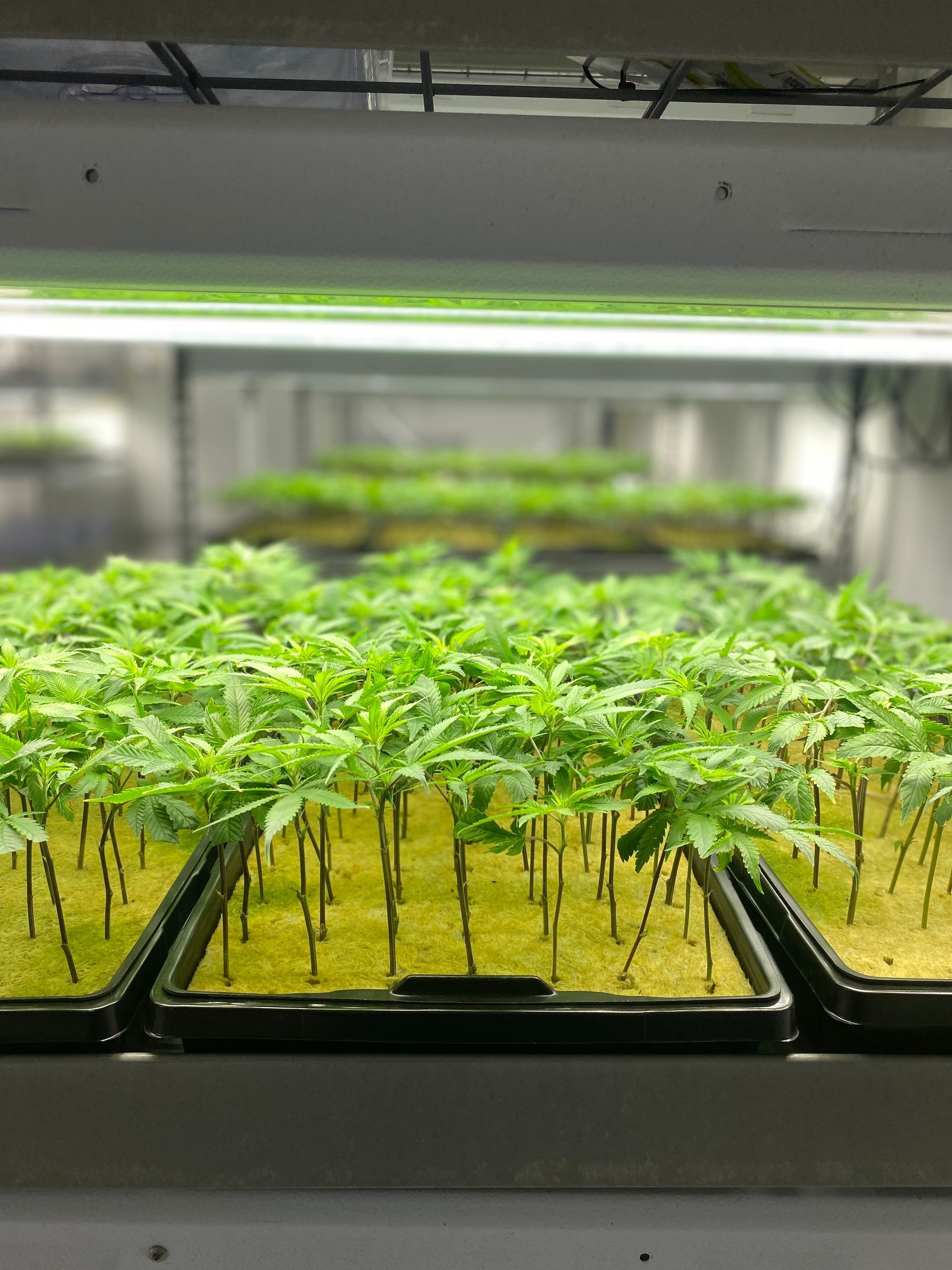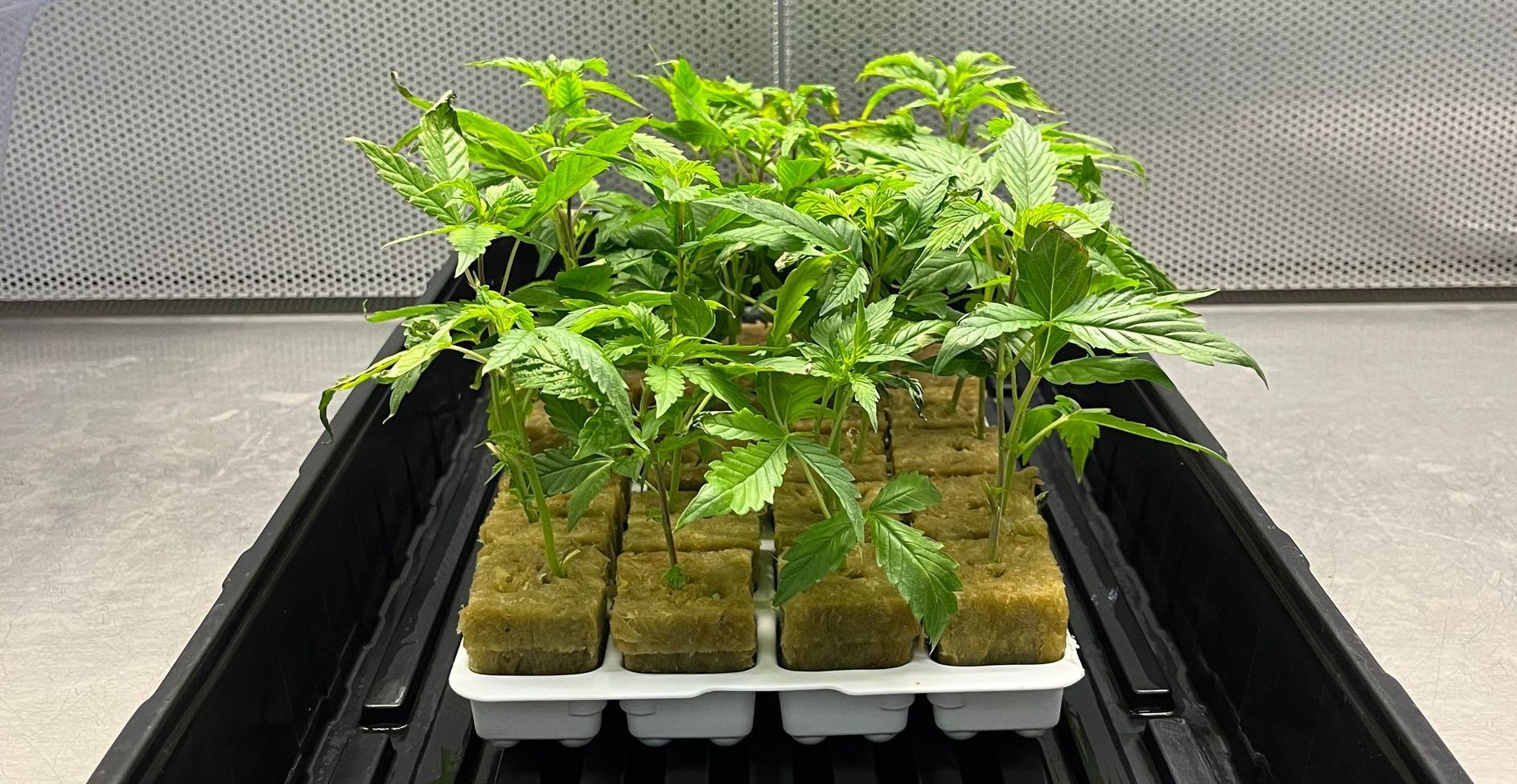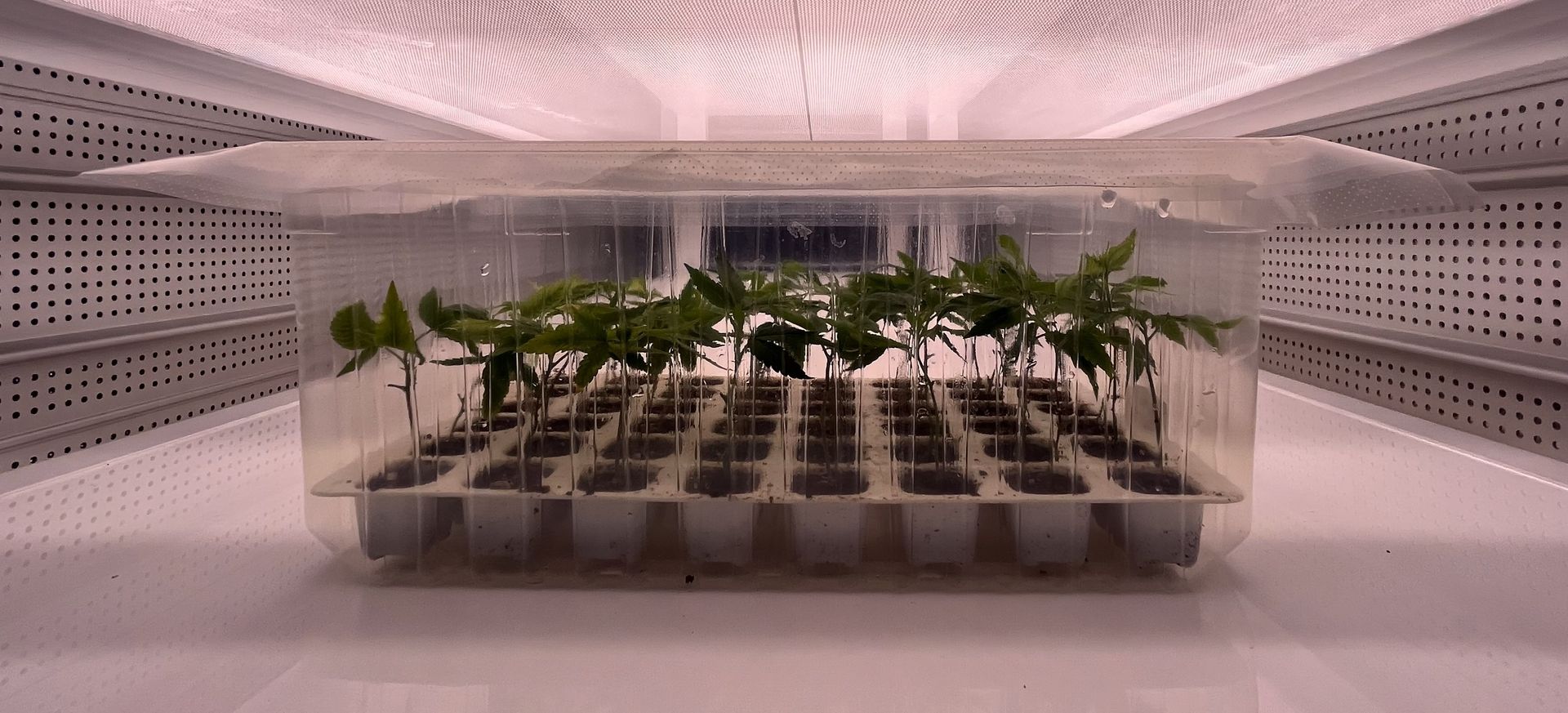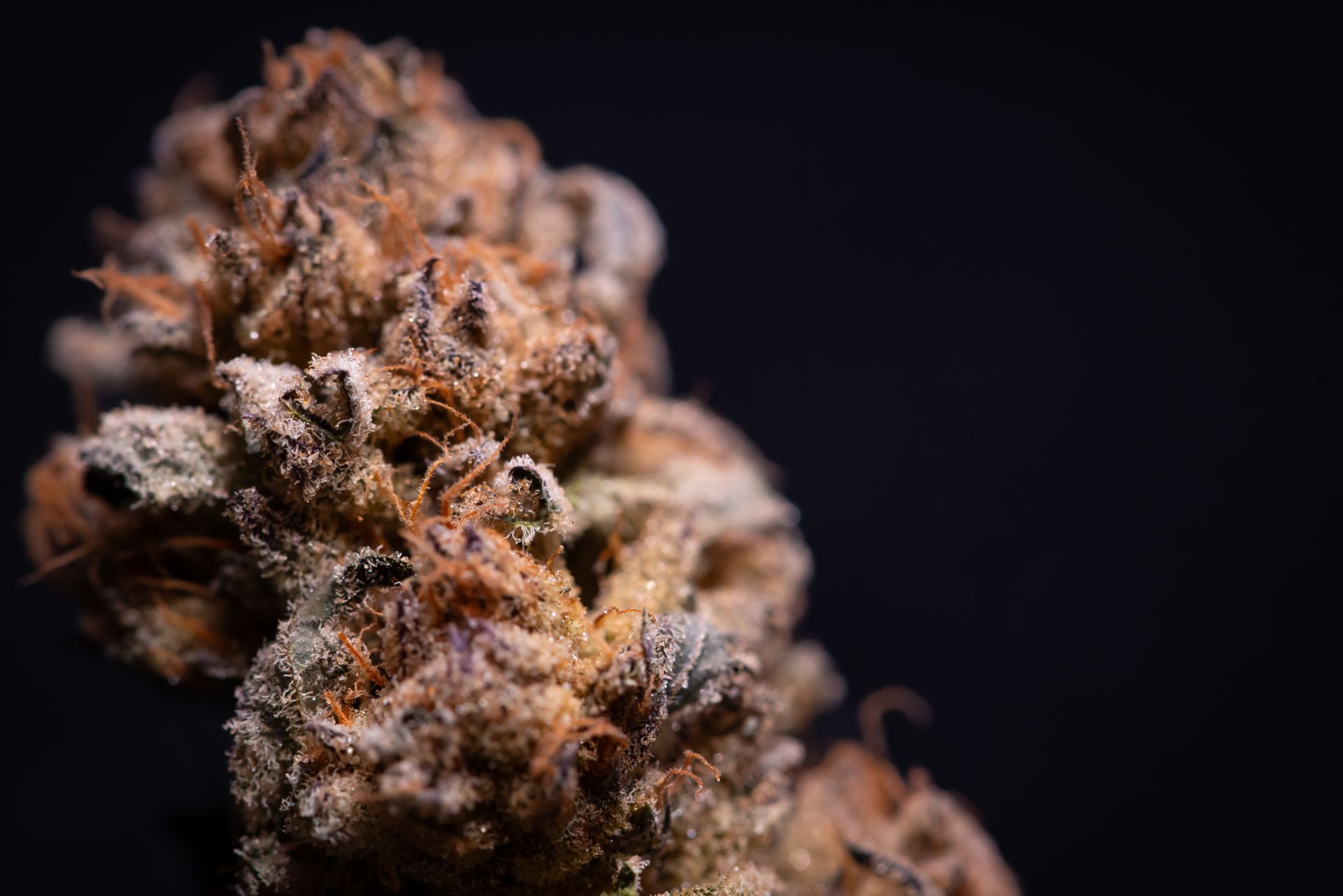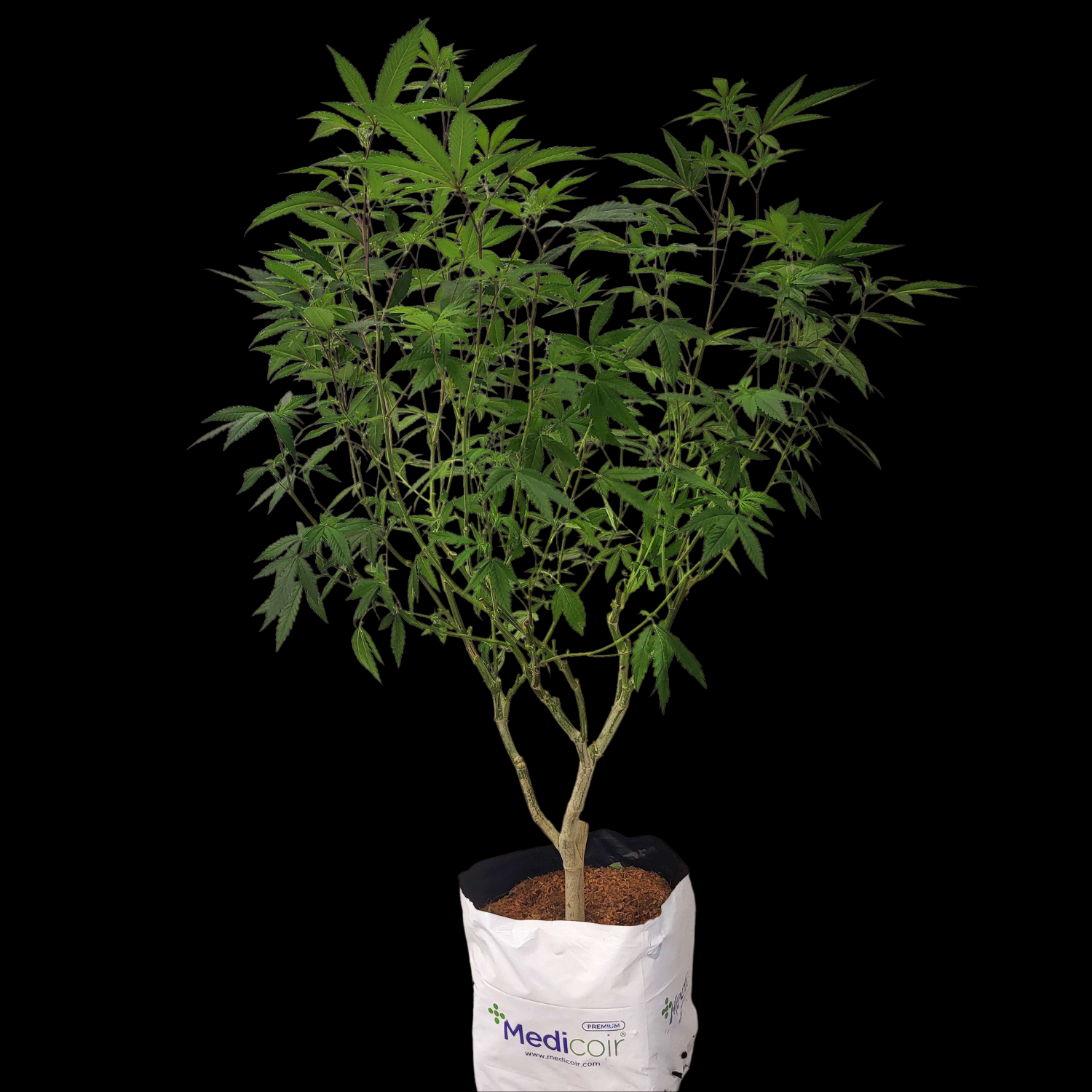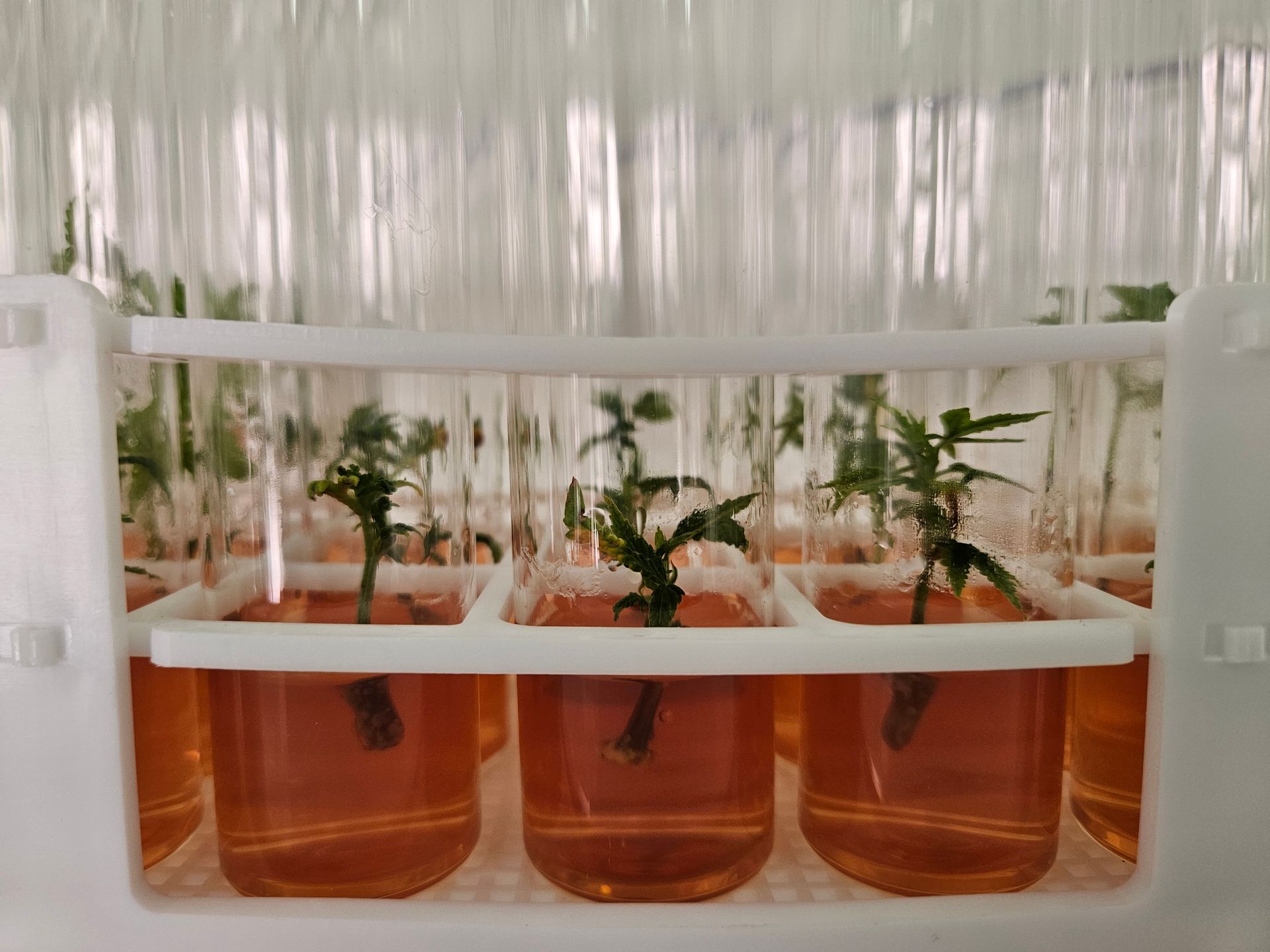Introduction to Cannabis Tissue Culture Propagation
The cannabis industry is experiencing a transformation, driven by groundbreaking advancements in cultivation techniques. One of the most promising and innovative methods revolutionizing the way we grow cannabis is cannabis tissue culture propagation.
This modern approach enables cultivators to grow consistent, high-quality plants while reducing the risks associated with traditional propagation methods. At Klonetics, we’re passionate about using cannabis plant tissue culture to help cultivators unlock new levels of yield, resilience, and scalability in their operations.
For those invested in commercial cannabis cultivation, understanding the potential of tissue culture is essential to optimizing results and maintaining a competitive edge.
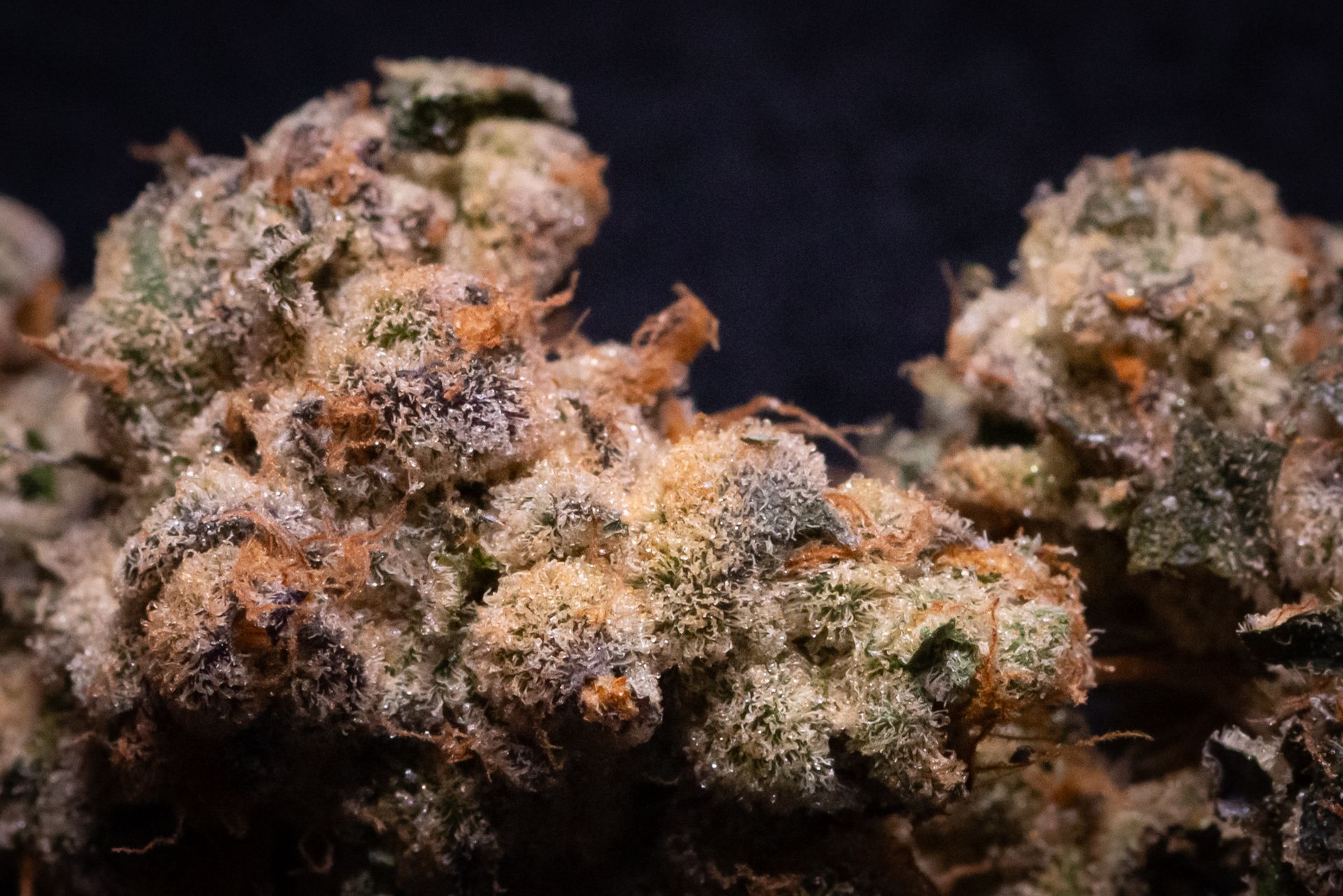
What is Cannabis Tissue Culture Propagation?
Tissue culture propagation, also known as micropropagation, is a sophisticated method used to reproduce plants under sterile conditions by cultivating cells or tissues in a controlled laboratory environment. At Klonetics, we utilize this advanced technique to take a small piece of the plant—be it a stem, leaf, or root—and place it in a nutrient-rich medium that promotes cell growth and differentiation into new plants. This cutting-edge process not only ensures disease-free cannabis plants but also allows for precise genetic replication, resulting in clones with unparalleled uniformity and predictable growth patterns.
Leveraging cannabis tissue culture provides cultivators with enhanced control over plant genetics and offers a scalable solution to meet industry demands. It’s a game-changer for those looking to improve efficiency, maximize yields, and deliver consistent, high-quality cannabis products.
Benefits of Cannabis Tissue Culture Propagation
1. Disease-Free Plants
Traditional cannabis cultivation methods expose plants to bacteria, fungi, and viruses, which can devastate an entire crop. One of the most significant advantages of
cannabis tissue culture is that it produces
disease-free cannabis plants by growing them in sterile conditions. At Klonetics, we prioritize quality and safety, ensuring that each plant is free from pathogens and environmental contaminants that are common in traditional growing methods.
2. Genetic Preservation and Uniformity
Consistency is critical in the cannabis industry, where consumers expect reliable effects and potency. Tissue culture offers a high level of genetic preservation, allowing for uniform growth across each batch. This consistency is particularly valuable to cultivators aiming to build trust with their customers. By using
cannabis tissue culture techniques, we help growers produce reliable products, batch after batch, each with the same therapeutic benefits and quality.
3. Scalability
The tissue culture process allows cannabis producers to rapidly scale up their operations, producing large quantities of plants in a relatively short amount of time. With
cannabis tissue culture, Klonetics empowers growers to meet increasing demand without sacrificing quality. This method is especially beneficial for companies focused on growth and expansion, offering a streamlined path to standardize product lines and increase production capacity.
4. Improved Growth Rates
Cannabis tissue culture not only results in healthier plants but can also enhance growth rates by optimizing the plant’s environment and nutrient intake. Our precise approach to tissue culture supports accelerated plant development, meaning growers can reach production targets faster, saving both time and resources.
5. Environmental Impact
Because
cannabis tissue culture propagation requires fewer resources compared to traditional propagation methods, it can significantly reduce the environmental footprint of cannabis cultivation. With less need for water and pesticides, Klonetics' tissue culture solutions are both cost-effective and eco-friendly, supporting sustainability initiatives across the cannabis industry.
To learn more about how our team at Klonetics is implementing advanced tissue culture methods, explore our Solutions Page on Klonetics.com.
How Tissue Culture Propagation Works
The cannabis tissue culture process follows several critical steps, all carried out under highly controlled conditions to ensure optimal growth and consistency. Here’s how we achieve excellence in tissue culture at Klonetics:
1. Explant Selection
The process begins with selecting a small part of the cannabis plant, such as a stem, leaf, or root, known as the
explant. This piece is meticulously sterilized to eliminate any contaminants.
Explant selection is vital because it directly influences the quality and health of the resulting plants.
2. Media Preparation
The explant is then placed in a
nutrient-rich medium that contains essential nutrients, vitamins, and plant hormones tailored to stimulate cell division and promote growth. Different types of media are used depending on the plant’s growth stage and desired characteristics, allowing us to customize the propagation process based on our clients' unique needs.
3. Callus Formation
In some cases, the explant forms a
callus—a mass of undifferentiated cells that serves as a foundation for new plant tissue. This stage is crucial for initiating further growth, enabling us to control the development process and ensure each plantlet is healthy and robust.
4. Shoot and Root Development
Using precise concentrations of growth regulators, the tissue is encouraged to form shoots and roots. Once these structures have developed, the plant can be transplanted into a
potting medium for further growth. The team at Klonetics fine-tunes the use of
cannabis tissue culture techniques to optimize both shoot and root development, ensuring our plants are ready to thrive in any cultivation environment.
5. Acclimatization
After root and shoot development, the young plants, or
plantlets, are gradually acclimatized to non-sterile conditions and prepared for transfer to traditional growing environments. This stage is critical for transitioning the plants from the controlled lab setting to natural conditions, setting them up for success in your production operation.
Challenges and Considerations in Cannabis Tissue Culture
While cannabis tissue culture propagation offers incredible benefits, it’s not without challenges. The process demands precision, expertise, and an environment free of contaminants. Here are a few considerations:
- Sterility Requirements: Maintaining a sterile environment is crucial. Even minor contamination can ruin an entire batch. Klonetics employs rigorous sterile techniques, including the use of clean lab surfaces, disinfectants, and autoclaved equipment, to ensure a contaminant-free process.
- Cost and Equipment: While tissue culture can save money by reducing crop loss and improving yield, initial investment in specialized lab equipment and materials is necessary. Our facility is equipped with state-of-the-art growth chambers, culture media, and sterilization equipment, ensuring we meet the highest standards of quality.
- Skilled Personnel: Successfully conducting tissue culture propagation requires skilled technicians familiar with sterile techniques and plant biology. At Klonetics, our expert team brings a wealth of experience and knowledge, ensuring that each stage of tissue culture is conducted with the utmost care and precision.
- Time Investment: Compared to traditional cloning, tissue culture can take longer to produce mature plants. However, the benefits, such as producing disease-free cannabis plants and enhancing genetic consistency, often outweigh the time required.
For more information on challenges in cannabis cultivation, visit Cannabis Business Times.
The Future of Cannabis Tissue Culture
As the cannabis industry continues to expand, advanced propagation methods are becoming essential. Cannabis tissue culture is increasingly recognized as a valuable tool for commercial cannabis production, enabling reliable propagation and maintaining genetic integrity—a critical factor for brands committed to delivering consistent quality.
By adopting tissue culture techniques and integrating cannabis lab testing services, cultivators can achieve an elevated standard of quality control. Klonetics stands at the forefront of this movement, providing a suite of tissue culture services to help cannabis producers optimize their growth cycles, reduce risks, and maximize yields. To explore how our cannabis tissue culture services can enhance your operation, visit our About Us Page.
Frequently Asked Questions (FAQ)
- What is cannabis tissue culture propagation?
Answer: It’s a method of reproducing cannabis plants by cultivating cells or tissues in a sterile lab environment, enabling the production of disease-free plants with consistent genetics—ideal for commercial cultivation. - How does cannabis tissue culture benefit commercial growers?
Answer: This method provides disease-free plants, scalability, and genetic uniformity, allowing growers to produce reliable products that meet customer expectations for quality and potency. - Is tissue culture the same as cloning?
Answer: Unlike traditional cloning, which involves rooting cuttings, tissue culture is performed in a sterile lab environment using nutrient-rich media, offering greater control and reduced risk of disease transmission. - What are the challenges of cannabis tissue culture?
Answer: Challenges include maintaining sterility, the cost of equipment, and the need for skilled technicians. However, the benefits—like improved yields and consistency—often outweigh these factors. - Can tissue culture be used for all cannabis strains?
Answer: Yes, but some strains respond better than others. Our technicians at Klonetics optimize the process to meet the specific needs of each strain.
This comprehensive introduction highlights the transformative power of cannabis tissue culture propagation. At Klonetics, we are committed to helping you achieve exceptional results by embracing the latest advancements in plant science. Stay tuned for the next article in this series, where we’ll delve deeper into the science of cannabis tissue culture and micropropagation.


